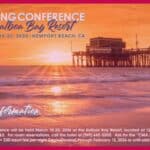What is a non-recourse loan? Who are the lenders? What does it take to qualify? These are just some of the questions we get asked. From your mortgage professionals, we’ll give you the rundown of what you need to know about non-recourse loan financing.
What is Non-Recourse Loan Financing?
A non-recourse loan is a loan secured by collateral, which is usually some form of property. If the borrower defaults, the issuer can seize the collateral but cannot seek out the borrower for any further compensation, even if the collateral does not cover the full value of the defaulted amount. In short, lenders can collect the collateral but may not go after the borrower’s other assets.
While potential borrowers may find it attractive to apply for a non-recourse loan, these types of loans often come with higher interest rates. They are generally reserved for individuals and businesses with stellar credit histories.
How Are Non-Recourse Loans Different from Recourse Loans?
Non-recourse loans specify a limit up to which your lender can seize your assets in the event of a default; that is up to the value of your collateral. On the other hand, recourse loans allow the lender to seize assets other than the collateral if your debt exceeds the value of the collateral. You can have collateral for both types of loan. All you need to do is specify the property/ properties to be seized in case you default.
Non-recourse loans have higher rates of interest than recourse loans and require you to have impeccable credit (high credit scores) to be able to avail of them.
Examples of recourse and non-recourse loans:
Automobile loans are generally recourse loans; if you fail to keep up with the due amount, the lender can repossess your vehicle and sell it for its market value.
Non-recourse loans can be availed by businesses or individuals with a good credit history. Most traditional financial institutions prefer giving out recourse loans to avoid the risk of loss in the event of defaults. Yet, if you have stellar credit scores, the lenders may be more willing to hand out a non-recourse loan, although at higher interest rates.
Where Are Non-Recourse Loans Used?
These loans are often used to finance commercial real estate projects and other projects that include an extended completion period. In the case of real estate, the land acts as collateral for the loan. A non-recourse loan is also used in financial industries, with securities placed as collateral.
How Do I Qualify for Non-Recourse Loans?
Clearly, the majority of the risk and exposure with non-recourse loans rests with the lender. Therefore, a non-recourse loan may be more difficult to qualify for than a recourse loan. Commercial lenders will often only extend non-recourse loans to finance certain types of properties and only to worthy borrowers. Stable finances and an excellent credit score are two of the most important factors that a lender will look at. Generally, the loan requires the property to be a larger city, be in good condition, and have good historical financials, too. To qualify for a non-recourse loan financing, you must have:
- High credit scores
- A low loan-to-value ratio
- A steady source of income
- At least a 1.25 debt service coverage ratio (DSCR)
Also, the collateral you use for the loan should:
- Not be your primary residence
- Be built after 1940
- Be in the US
- Have a roof that is not shared with any other properties
How Mortgage Rates Are Calculated at Fidelity Mortgage Lenders
What Are the Benefits of Non-Recourse Loans
Non-recourse loan financing provides extensive benefits to borrowers, including:
- Your personal assets are not tied to the loan, meaning even if you default on loans, the lender can only seize the collateral but cannot go after your personal assets.
- These loans provide more freedom and flexibility to borrowers by allowing them to sell their share of the property that is underwritten with the non-recourse loan without worrying about future liabilities.
- Non-recourse loans are a great choice for those who are planning for the future, as they come with estate planning benefits.
Did you know that non-recourse loans benefit estate planning?
Most commercial real estate borrowers do not think too much about what would happen to their loan if they pass away. Often, they assume that when their heirs inherit the property, they will inherit the loan as well. With a recourse loan, the heirs will have to qualify with similar qualifications as the original owner. If the heirs do not qualify, the loan can be called, leading to a stressful situation in the 11th hour.
With a non-recourse loan, the loan is made to a single asset entity like an LLC rather than an individual or individual. In most cases, the heirs’ financial qualifications are not questioned as long as the loan payments continue to be made on time.
How to Know if Your Loan is Recourse OR Non-Recourse?
Your mortgage type will depend on your state, as there are 12 states that allow both recourse and non-recourse loans, namely- Alaska, Arizona, California, Connecticut, Idaho, Minnesota, North Carolina, North Dakota, Oregon, Texas, Utah and Washington. Usually, it would make no difference whether you have a recourse or non-recourse loan unless you fail to pay back the borrowed amount.
For other forms of loan, such as credit card debts or auto loans, look at the terms stated in the original documents or ask your lender in case you are uncertain. Work with your lender to avoid defaults, especially when you have a recourse loan.
We Have Your Back at Fidelity Mortgage Lenders
At Fidelity Mortgage Lenders, we can help you secure the right loan for your needs. To get started, contact Fidelity directly at info@fidelityca.com or give us a call at 800.752.9533.
Read Examples Of Relationships With Our Clients – THE TOUGH NEGOTIATOR
Loan Application
Comments are closed.







